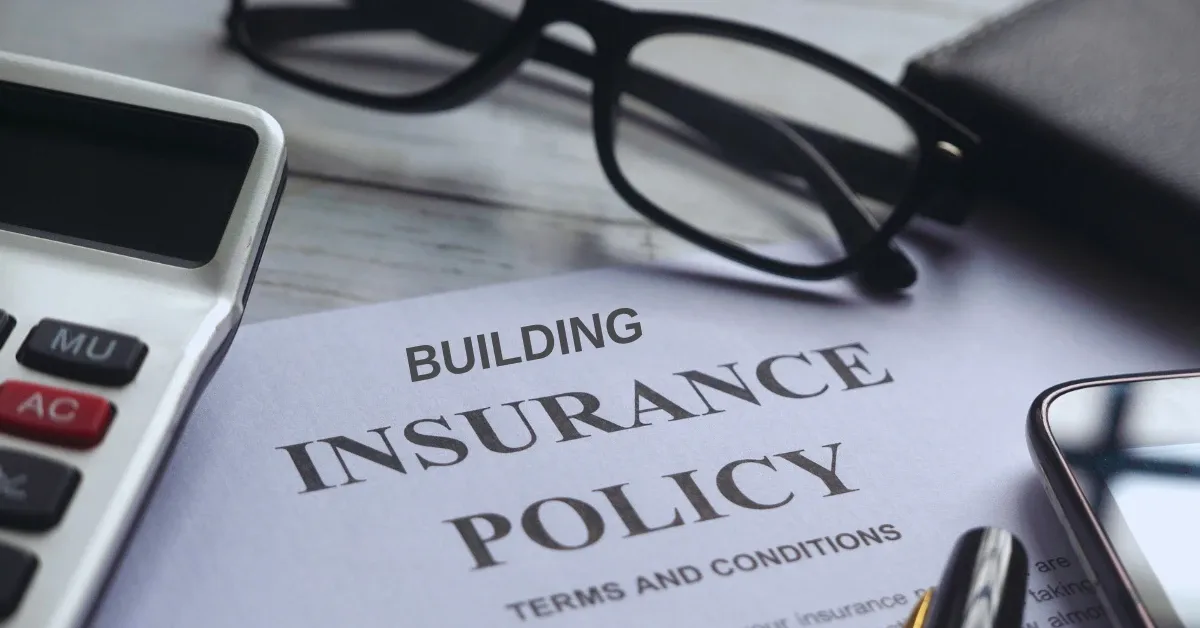Yes, tenants should consider purchasing building insurance to protect their belongings and themselves against unforeseen events such as theft, fire, or natural disasters that could damage the building. Building insurance typically covers the structure itself and any permanent fixtures, while tenants need contents insurance to cover their personal belongings.
While building insurance is typically the responsibility of the landlord, tenants may want to consider purchasing additional coverage for their own peace of mind. We will explore the importance of building insurance for tenants, what it covers, and the factors to consider when shopping for a policy.
We will also discuss the differences between building insurance and contents insurance and how to choose the right coverage for your needs.

Understanding The Importance Of Building Insurance For Tenants
As a tenant, renting out a property is a fantastic way to have a space to call your own without the stress and financial burden of ownership.
However, you still need to consider the importance of building insurance. Here’s everything you need to know:
What Is Building Insurance?
Building insurance is a type of coverage that protects the property owner financially if there’s damage to their building or property.

It typically covers various problems like theft, fire, floods, or natural disasters.
So, the property owner can make an insurance claim to recover the cost of repairs or replacements.
What Are The Benefits Of Building Insurance For Tenants?
As a tenant, you may underestimate the importance of building insurance, assuming that the landlord has everything covered.
However, this is not always the case. While landlords may have a policy in place, this only covers damages to the building structure itself, leaving your possessions unprotected.
Here’s how tenants can benefit from building insurance:
- Protection of personal belongings: With personal contents insurance, tenants can recover the cost of any possessions damaged or stolen due to the same causes as stated under building insurance (theft, fire, floods, or natural disasters)
- Peace of mind: You can rest easy knowing that you’re protected in case of an emergency or catastrophe, giving you peace of mind.
- Protection of assets: If you damage the rented property unintentionally, property insurance may cover any losses. If you offer property damage to your landlord, you’ll be protected with insurance.
- Cost-saving: By purchasing tenant’s insurance, you can be sure that you’re not financially responsible for any unexpected damage or loss of possessions.
Are Tenants Required To Have Building Insurance?
It’s not a legal requirement for tenants in the UK to obtain building insurance.
However, the landlord’s policy only covers the property structure itself, not the tenant’s contents or personal possessions.
Hence, it is highly recommended that tenants get personal contents insurance to protect themselves in case of emergencies.
Tenants don’t necessarily require building insurance, but obtaining personal contents insurance is recommended.
It’s important to choose the right type of policy to ensure you have enough coverage for your personal items, and you can rest easy knowing you’re protected if something unexpected happens.
Clarifying The Responsibility Of Building Insurance Coverage
As a tenant, you might wonder if you need building insurance. After all, the building is owned by your landlord, right?
But, who is responsible for insuring the building? Who covers the damages caused by natural disasters, fires, or thefts?
Keep reading to clarify the responsibility of building insurance coverage and understand if you need additional insurance as a tenant.
Who Is Responsible For Building Insurance Coverage?
As a general rule, the landlord is responsible for building insurance coverage.
Building insurance usually covers damages caused by natural disasters, fires, theft, and other hazards.
This coverage includes the physical structure and permanent fixtures such as walls, roofs, floors, windows, and doors.
What Is The Difference Between Landlord Insurance And Tenant Insurance?
While the landlord is responsible for building insurance, it doesn’t mean that your personal belongings are also covered.
The landlord’s insurance usually covers the physical structure and permanent fixtures, but not your furniture, clothes, electronics, or other personal items.
Tenant insurance, on the other hand, covers your personal belongings and also provides liability coverage in case you damage someone else’s property or cause bodily injury.
How Does Building Insurance Coverage Affect The Tenant’S Rent?
Building insurance coverage is part of the landlord’s expenses, which may affect the tenant’s rent.
However, building insurance is just one of the many expenses that landlords have, such as repairs, maintenance, and property taxes.
The amount that the landlord spends on building insurance is usually a small fraction of the total expenses.
Therefore, building insurance coverage is unlikely to cause a significant increase in the tenant’s rent.
As a tenant, you don’t need building insurance, but it may be a good idea to get tenant insurance to protect your personal belongings and provide liability coverage.
Building insurance is the landlord’s responsibility, and it covers damages to the physical structure and permanent fixtures.
By understanding the responsibility of building insurance coverage, you can make informed decisions and ensure that you have the necessary coverage for your needs.
Exploring What Building Insurance Covers For Tenants
Tenants renting a property often have questions about building insurance. Is it necessary for tenants to have building insurance or is this only something landlords need?

Well, it’s important to understand what building insurance covers for tenants since it can affect their property in numerous ways.
What Is Covered By Building Insurance For Tenants?
- Some building insurance policies include cover for fixtures and fittings, such as carpets and curtains.
- In some cases, insurance policies may include cover for accidental damage to the building, caused by the tenant.
- Building insurance can also cover damage caused by natural events, such as floods, storms, or earthquakes.
- In case of fire, building insurance can cover the cost of repairing or rebuilding the property.
What Is Not Covered By Building Insurance For Tenants?
- Building insurance policies usually do not include cover for the tenant’s personal possessions such as furniture and electronics.
- Building insurance does not typically cover any damage caused by the tenants, such as intentional damage to walls or floors.
- Any belongings damaged by natural events, such as flooding or storms, are also not protected under building insurance.
How Does Building Insurance Impact Tenant’S Property?
- Building insurance can protect the tenant from potential problems such as damage caused by unexpected events such as fire or floods, which can limit the overall risk to tenants.
- Tenants should not assume that their personal belongings are also covered under the landlord’s building insurance policy. It is important to acquire separate contents insurance to protect their personal items and belongings.
- Discussing insurance options with the landlord can be beneficial for tenants, as this can help clarify their responsibilities and protect them in case of any unexpected events such as natural disasters.
- Tenants are responsible for maintaining upkeep on the interior of the property, which can help minimize the level of damage from natural disasters or other unexpected events.
Building insurance can have a considerable impact on tenants’ well-being, and it is essential to know what building insurance covers and does not cover.
Insurance policies should align with individual preferences and provide ample protection for unforeseen circumstances.
By acquiring suitable insurance, tenants can feel secure in their new homes, knowing that they are financially protected in the worst-case scenario.
Frequently Asked Questions Of Do Tenants Need Building Insurance
Do Tenants Need Building Insurance If Renting?
Yes, building insurance is typically the responsibility of the landlord. However, tenants may want to consider contents insurance.
Will Building Insurance Cover Tenant’S Belongings?
No, building insurance only covers the structure itself. Tenants should obtain contents insurance to cover their personal belongings.
What Does Building Insurance Typically Cover?
Building insurance typically covers any damage to the structure of the building and permanent fixtures such as plumbing and electrical.
Can Tenants Be Held Liable For Building Damage?
Tenants can be held liable for any damage they cause to the building or property. This is why renters insurance is recommended.
Conclusion
After considering all the parameters, it becomes clear that building insurance is crucial for tenants, balancing the cost of paying annual premiums with the financial security it provides in the event of a disaster.
In case a tenant’s home is affected by unforeseen events leading to property damage or losses, building insurance can help them get back on their feet.
It’s essential to get a clear understanding of your landlord’s insurance coverage, as it may not cover your personal possessions, and you may need to opt for content insurance separately.
It’s always better to be safe than sorry by taking preventive measures for possible risks.
By having building and content insurance policies, tenants can relax and have peace of mind, knowing that they are adequately protected.
Ultimately, the decision to purchase building insurance is dependent on individual circumstances, but it undoubtedly protects tenants from potential financial loss.
